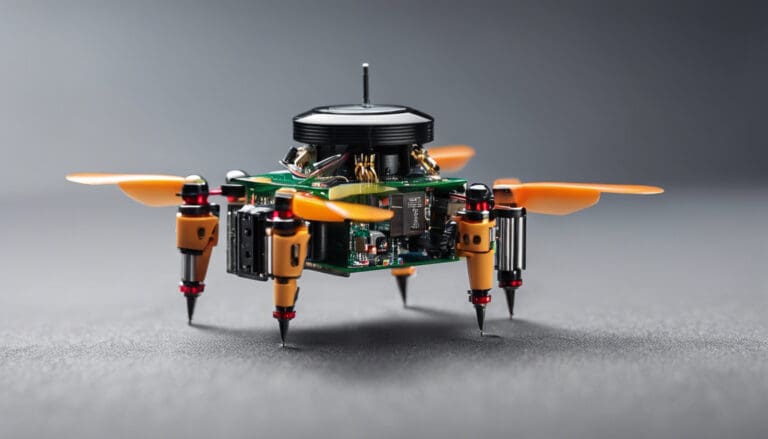9 Mistakes Most People Make When Using AI Decision Making
Have you ever wondered why, despite the progress in artificial intelligence (AI), some folks still find AI decision making tricky? A striking 70% of companies find it hard to use AI effectively in decision making. This shows a big gap between what could be and what really happens. Often, the issue lies in common mistakes that many don’t realize they’re making.
AI in business is changing how we look at data, make choices, and predict future trends. But, diving into decision-making algorithms without proper know-how can lead to not-so-great outcomes. This post aims to highlight the 9 common mistakes in AI decision making and how to dodge them. Whether you’re a leader in business, a data expert, or simply curious about AI, understanding these pitfalls is key for making the most of AI.
Ready to polish your AI decision-making skills? Let’s get started.
In the article
Understanding AI Decision Making
What is AI Decision Making?
AI decision making happens when AI technologies make choices based on data, algorithms, and predictive models. Simply put, it’s when computers analyze lots of data to make decisions without humans stepping in. This method can greatly boost efficiency and accuracy in different areas.
But for AI in business and other fields to work well, knowing the tech and how it fits in specific situations is vital. AI decisions can be simple, like suggesting a movie, or complex, like spotting business chances.
The perks of using AI in decision making are huge. They include faster decision-making, fewer human mistakes, and the power to sift through and analyze big data sets that would overwhelm humans. For a deeper dive into how AI can transform business operations, consider exploring insights from the Harvard Business Review on competing in the age of AI.
The Role of AI in Business and Beyond
In the business realm, AI decision making tools for businesses have reshaped how things work by automating usual tasks, enhancing logistics, bettering customer experiences, and helping in strategic planning. AI’s role reaches further than business, touching healthcare, finance, education, and even governance, making decisions more informed and timely.
Yet, we can’t ignore the hurdles of AI in decision making, like ethical issues and possible biases in algorithms. Organizations need to tackle these with care to fully enjoy AI’s benefits. The importance of understanding and mitigating biases in AI cannot be overstated.
Getting how AI makes decision making better is key for leaders looking to use AI tech. It’s about using data wisely, understanding AI’s powers, and integrating AI decision-making processes into the organization smoothly.

Common Mistakes in AI Decision Making
1. Lack of Clear Objectives
A major mistake in using AI decision making is not setting clear goals. Goals drive the development and use of AI tech, making sure they meet the business’s needs.
Without a clear aim, AI projects may wander, using up resources without delivering real benefits. Thus, setting clear AI goals is key.
2. Ignoring Data Quality
Data is essential for AI decision making. Looking past the quality of data can lead to wrong results. Ensuring data quality is a must, as bad input equals bad output.
Companies should put effort into proper data cleaning and prep to make the best use of their AI decision making tools. A guide on AI data preparation techniques can be invaluable for companies looking to improve their AI applications.
3. Overreliance on AI
Though AI decision making tools for businesses are powerful, relying too much on them without human input can be risky. AI isn’t perfect and can make mistakes based on wrong logic or biased data.
So, keeping AI and human wisdom in balance is crucial.
4. Underestimating the Importance of Data Diversity
AI learns from the data it gets. If this data isn’t diverse, there’s a risk of creating biased or limited solutions. Ensuring data diversity is vital for balanced AI decisions.
5. Neglecting AI Ethics and Bias
Ethics in AI decision making is a big deal. Ignoring AI’s potential bias can lead to serious issues, especially in sensitive areas like hiring.
It’s important to tackle ethical issues and work on reducing bias.
6. Failing to Update Decision Making Algorithms
AI isn’t a set-it-and-forget-it tool. It needs regular updates to stay useful. Outdated algorithms can cause less effective decisions. Updating algorithms regularly keeps performance up.
7. Overlooking the Importance of Human Oversight
AI can boost human abilities but can’t replace them fully. Human oversight in AI decision making ensures the results match up with the organization’s values and ethics.
8. Not Considering the Impact on Stakeholders
AI decisions can widely impact. Not thinking about how these choices affect different groups can bring negative surprises.
Engaging with stakeholders to get their views is essential.
9. Skipping Performance Evaluation
Lastly, not checking how well AI systems do can stop organizations from seeing their full capability. Continuous performance checks help find where to get better and gauge success.

Improving AI Decision Making in Your Organization
Setting Clear Goals for AI
Begin with what you want to achieve using AI. Having clear aims guides the work and measures success.
Ensuring Data Quality and Diversity
Work on making sure the data you use is right, clean, and varied. This boosts your AI’s decision quality.
Maintaining a Balanced Approach
Mix AI’s analytical strength with human insight. This balance helps lower risks linked to leaning too much on automation.
Incorporating Ethics and Addressing Bias
Make building ethical AI systems a priority. Tackle biases upfront for fair decision making.
Regularly Updating Algorithms
Refresh your AI’s algorithms to keep up with new data and changes, ensuring it keeps working well.
Emphasizing Human Oversight
Make sure a human checks AI decisions. This look can catch mistakes and errors AI might make.
Engaging with Stakeholders
Know how AI decisions touch everyone. Talk to stakeholders for their feedback and make needed changes.
Evaluating Performance Continuously
Always check how well your AI is doing. Use what you learn to tweak and improve its decision-making over time.

Case Studies: Success and Failure in AI Decision Making
Successful AI Integration in Business
Many companies have seen big gains by adding AI into their decision making. Success comes from clear goals, quality data, and keeping a good mix of AI smarts and human instinct.
For instance, businesses in retail have used AI to better manage stock and suggest products to customers, boosting sales and satisfaction.
Lessons Learned from AI Decision Making Failures
Failures in AI decision making teach us a lot. Usual downfalls include not caring for data quality, ignoring ethical worries, and not talking to stakeholders right.
Learning from these slip-ups is key for companies wanting to use AI the right way. By tackling these areas, firms can boost their AI decision making, leading to better results.

Take Charge of AI Decision Making
By now, you see how, used wisely, AI decision making can be huge for AI in business and more. Remember, learning from the mistakes we talked about and using this knowledge for smarter choices not only boosts confidence but also makes your decision-making algorithms more effective, leading to improved results.
So, take the next step. Consider these tips, apply them in your AI decision making, and notice the change they bring. And if this post helped, feel free to share your thoughts in the comments or spread the word on social media. Let’s help others make smarter choices with artificial intelligence!







